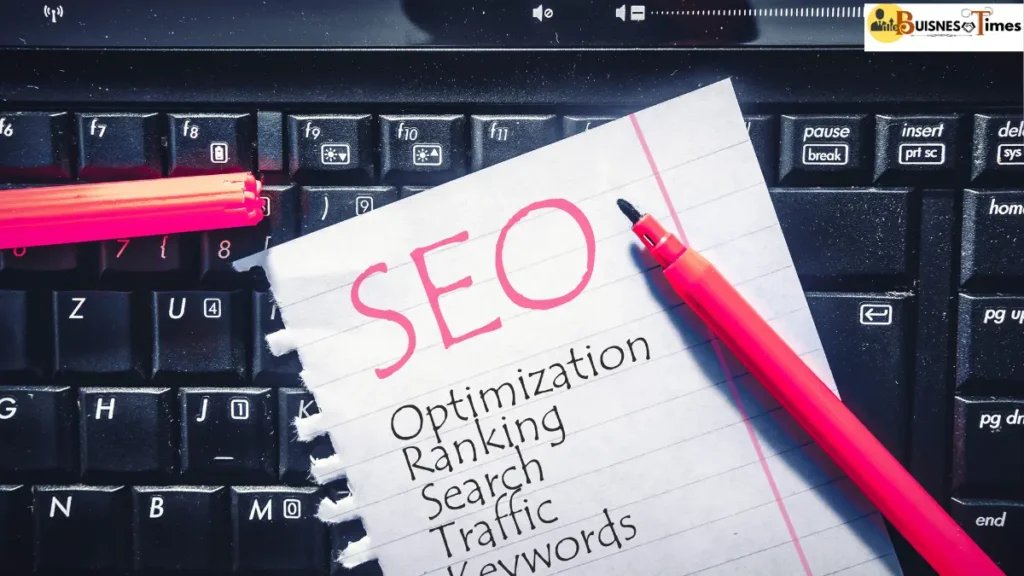The digital landscape is evolving at lightning speed. SEO strategies that worked flawlessly a few years ago are now struggling to deliver results. The rise of artificial intelligence (AI), changing user behaviour, and new content consumption patterns have forced marketers to rethink how they approach search engine optimisation.

AI has rewritten the rules of search. The Internet today is flooded with AI-generated content, creating a massive challenge for businesses relying on organic traffic. According to a Bain survey, websites have seen a 15–25% drop in organic traffic, making it clear that traditional SEO are no longer enough.
The Shifting Landscape of Search
Once upon a time, SEO was simple: identify high-traffic keywords, optimise your blog posts, and build backlinks. Land in the top three results, and traffic was almost guaranteed. But those days are gone. Now, search behaviour is fragmented across Google, AI platforms like ChatGPT, Gemini, Perplexity, and Claude.
Google still holds nearly 90% of the global search market, but it is no longer the only gatekeeper. ChatGPT now boasts more than 122 million daily active users (May 2025), and it continues to grow. This means businesses must evolve their SEO strategies to include AI-driven search engines.
Adding to the challenge are Google’s AI overviews. These direct answers, displayed on the results page, have created “zero-click searches.” According to SEMRush, 13.14% of all queries now trigger AI overviews. That number has doubled since January 2025. Since most of these are informational queries, once considered “SEO gold,” CMOs are struggling to adapt their SEO strategies to this new reality.
AI Content Flood and SEO Challenges
AI-generated content has exploded. Forbes Advisor reports that 42% of businesses use AI tools to create long-form blogs. These tools can quickly paraphrase and repurpose existing articles. However, Google has clarified that repackaged content with no originality won’t rank. What matters is SEO strategies focused on relevance, depth, and unique perspectives.

AI doesn’t consume content like humans. Instead, it scans, extracts patterns, and highlights structured data. So cramming keywords or stuffing blogs with repetitive text is pointless. Modern SEO strategies must instead focus on clarity, authority, and intent.
Four Pillars of Modern SEO Strategies
1. Structured Authority
AI systems value well-structured content. To align SEO strategies with AI platforms:
- Use clean HTML with proper headings (H1 → H2 → H3).
- Implement schema markup (FAQs, How-To, Articles).
- Show E-E-A-T (Experience, Expertise, Authoritativeness, Trust).
- Define entities and context within the first 100 words.
- Provide evidence for every claim.
Every page should act as a self-contained knowledge hub. These are the kind of SEO AI strategies that resonate with AI-driven search systems.
2. Entity Ownership
If you don’t define your expertise, AI will attribute it elsewhere. Strong SEO strategies demand entity ownership. This means:
- Identifying and dominating 10–15 entities in your niche.
- Building comprehensive topic clusters.
- Using consistent terminology.
- Interlinking concepts with descriptive anchors.
The goal: when AI thinks of your industry, it thinks of your brand. That’s how future-proof strategies work.
3. Knowledge Architecture
Content without structure is noise. SEO strategies in 2025 require a strong knowledge architecture:
- Hub pages (2,500+ words) covering the big picture.
- Spoke pages for subtopics.
- Consistent vocabulary across all pages.
- Internal linking to build logical knowledge paths.
- FAQ schema for AI accessibility.
This layered approach ensures AI recognises your expertise and references your content in its outputs.
4. Citation Magnets
AI models only quote what’s quotable. Strong SEO AI strategies now include creating “citation magnets”:
- Proprietary data and research.
- Original frameworks and models.
- Benchmark reports and comparisons.
- Expert commentary with author profiles.
By offering unique, authoritative insights, your brand becomes a go-to source for citations.
The Human Touch Still Matters
AI is powerful, but it lacks originality and emotion. The best-performing SEO strategies are still those that balance technology with human insight. Authentic storytelling, expert perspectives, and thought leadership separate great brands from average ones.

Marketers must now embrace what some call “Slow Marketing.” This approach values depth over speed, intent over impressions, and trust over traffic numbers. Modern SEO AI strategies aren’t about chasing clicks—they’re about building lasting credibility.
The Road Ahead: Adapting SEO Strategies
As AI-driven platforms continue to grow, marketers need to shift from linear tactics to contextual strategies. It’s not about volume anymore, but value. Winning brands will be the ones that:
- Embrace structured authority.
- Establish entity ownership.
- Build knowledge architectures.
- Create assets worth citing.
Most importantly, the future of SEO will depend on authenticity. Businesses that deliver original insights, backed by expertise, will thrive in this AI-first world.
Frequently Asked Questions (FAQ) on SEO Strategies
1. What are SEO strategies in 2025?
SEO strategies in 2025 focus on adapting to AI-driven search engines, structured content, and human-centric storytelling. Businesses must use schema markup, entity-based SEO, and original insights to rank higher.
2. Why are traditional SEO strategies not working anymore?
Old-school keyword stuffing and backlink-focused tactics don’t work because AI and Google now prioritise context, authority, and structured data. Modern SEO strategies require depth and originality.
3. How does AI affect SEO strategies?
AI changes search behaviour by providing direct answers through tools like ChatGPT, Google’s AI Overviews, and Perplexity. This reduces clicks, so SEO strategies must now target citations, structured authority, and knowledge architecture.
4. What are the best SEO strategies for beginners?
For beginners, the best SEO strategies include:
- Writing niche-focused, valuable content.
- Optimising titles and meta descriptions.
- Using internal linking smartly.
- Adding FAQs and structured data.
- Building trust through expertise.
5. Can AI-generated content help SEO strategies?
Yes, but only if combined with originality. AI tools can assist with drafting, but successful SEO strategies need human editing, expert commentary, and unique insights to stand out.
6. What is the future of SEO strategies?
The future lies in entity ownership, structured authority, and creating content worth citing by AI systems. Brands that align their SEO strategies with AI-powered search will gain the edge.

